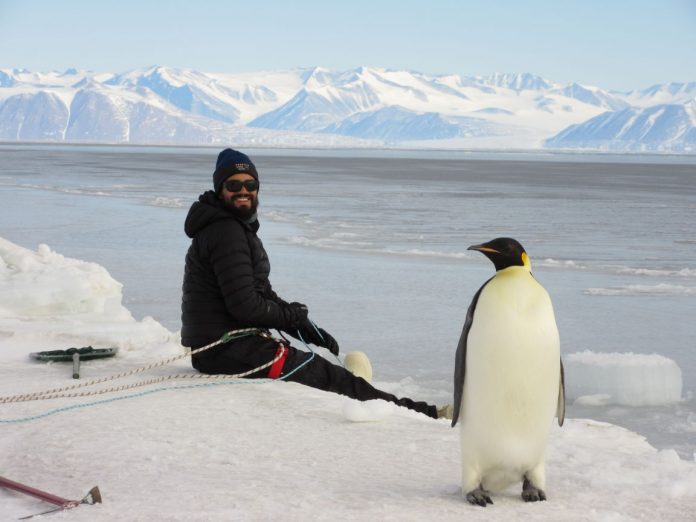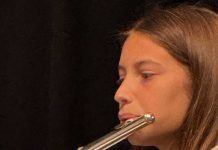When San Benito High School alumnus Kevin Johnson graduated more than 10 years ago, he never expected he would be going to Antarctica to study tiny swimming snails.
Johnson, 28, is now studying how ocean acidification affects pteropods, the tiny snails that eat algae below the ice’s surface and nourish multiple levels of the arctic food chain.
“I never would have dared to imagine I would be doing research in Antarctica,” Johnson wrote in an email, a common form of communication for him these days since off-continent calling requires approval and is usually denied for personal calls.
Since Johnson’s high school days when he enjoyed his advanced placement biology class and “managed to squeak by in chemistry”, he has won a $90,000 fellowship from the National Science Foundation to help him pay room, board and basic living expenses for three years of graduate school while he earns a Ph.D. in marine biology at the University of California, Santa Barbara.
In Antarctica, Johnson is part of a team collecting tiny pteropods and exposing them to water with different levels of carbon dioxide. The process mimics what occurs in ocean acidification, when human activities create higher-than-normal levels of carbon dioxide in the ocean and the chemistry of the seawater changes as a result.
Antarctica is a truly tough place to work with temperatures that may be 46 °F — just 14 degrees above the freezing point — in the summer and days that are -58 °F in winter, according to the United States Antarctic Program’s website.
Johnson’s current work in the arctic requires driving snowmobiles across the frozen Ross Sea, drilling holes in ice with a 10-inch auger and lowering a net more than 100 feet down to collect pteropods. It’s also the type of off-the-beaten-path job in which work stops for frequent penguin- and seal-watching breaks, since researchers are not allowed to do anything that would disrupt the animals’ behavior.
“Here, Emperor Penguins become very interested in what we are doing and tend to gather around us as we punch a hole in the ice,” Johnson wrote.
Johnson remembers one situation in which he had a net 150 feet under the water and a penguin arrived to check out the situation.
“All I could do was sit there and wait for him to decide I was not interesting and walk away,” Johnson wrote.
Although the South Pole is in one of the places most associated with winter holidays, Johnson will be coming home from his more than two-month project in the arctic Dec. 15, just in time for Christmas.
Johnson is heading back to California where he will reunite with his wife, Therese Potter. The couple has been staying in touch by email and occasional Skype calls – voice calls made via the Internet – where the two have to pause for at least a minute between sentences so that their voices do not get mixed. Johnson is planning to make at least one visit to San Benito County during the holiday season to see friends and to enjoy Christmas carols at the Living Hope Bible Church of Hollister.
Back in California, Johnson will be finishing his thesis, which focuses on the research he did in Antarctica. To follow Johnson’s adventures online, go to his team’s Facebook page: facebook.com/hofmannB134.










